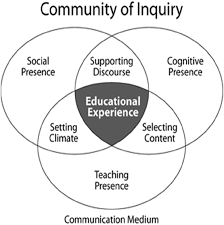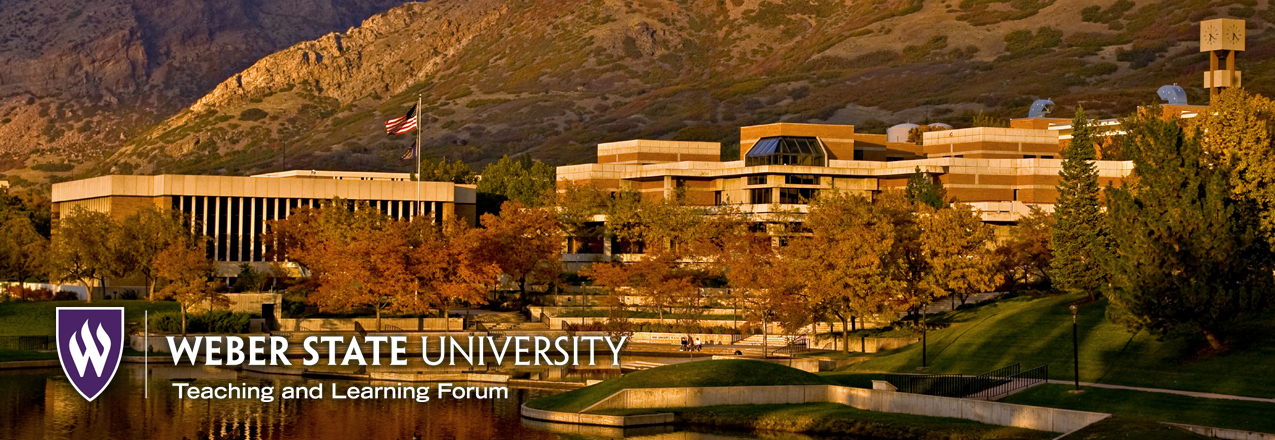October 2020 Newsletter

Nurturing Students Online and Virtually
“Empathy nurtures wisdom. Apathy cultivates ignorance.”
~Suzy Kazzem
What type of community are we creating in our online and virtual classes? Our students will be successful and feel a sense of belonging, nurturing, and care only to the extent that we have created an open community of inquiry.
The Community of Inquiry theoretical framework represents a process of creating a deep and meaningful (collaborative-constructivist) learning experience through the development of three interdependent elements – social, cognitive, and teaching presence.

Social Presence is “the ability of participants to identify with the community (e.g., course of study), communicate purposefully in a trusting environment, and develop inter-personal relationships by way of projecting their individual personalities.” (Garrison, 2009)
Teaching Presence is the design, facilitation, and direction of cognitive and social processes for the purpose of realizing personally meaningful and educationally worthwhile learning outcomes (Anderson, Rourke, Garrison, & Archer, 2001).
Cognitive Presence is the extent to which learners are able to construct and confirm meaning through sustained reflection and discourse (Garrison, Anderson, & Archer, 2001).
Garrison, D. R., Anderson, T., & Archer, W. (2000). Critical inquiry in a text-based environment: Computer conferencing in higher education model. The Internet and Higher Education, 2(2-3), 87-105.
Some ideas for creating a Community of Inquiry for Weber State Students:
- Encourage collaboration and the exchange of ideas;
- Create supportive, open, online conversations via discussion board threads, interjecting sensitive feedback and redirection periodically;
- Communicate regularly and sensitively with students to address their questions and offer clarification of expectations;
- Revise instructions and course structure as needed;
- Seek feedback on course materials and design as needed from WSU Online, the Teaching and Learning Forum and other colleagues.

TLF Announcements and Tools
Tuesday Teaching Tips
These virtual events will showcase some of the best practices for teaching in virtual and online formats presented by the faculty members from all colleges. Presentations will be in the format of GIFTS sessions (Great Ideas for Teaching Students) with Q&A opportunities at the end of each showcase. You can find a schedule and a registration form on our website.
New Faculty Retreat
The Teaching and Learning Forum is pleased to invite you to the 2020 New Faculty Retreat "Take ACTION: Adapt, Collaborate, Teach, Innovate, Observe, & Nurture." New faculty members have been participating in New Faculty Academy throughout the summer, and we are excited to wrap up the academy with a virtual New Faculty Retreat on Friday, October 16! Visit our website for more information and to register for sessions.
We will have a special keynote presentation by Flower Darby, author of Small Teaching Online. ALL faculty members are invited to attend this session on October 16 at 1 p.m. Register here.
Teaching in a Digital Classroom Series
The Classroom Technology Services team has upgraded over 200 classrooms with new technology that facilitates lecture capture and live streaming of classes. Many of the courses designated as FLEX in the class schedule will be taught in these technology enhanced classrooms. This Teaching in a Digital Classroom Series is designed to build your skills for teaching in classrooms equipped with this new technology. The first 200 faculty members (contract, tenure track and adjunct included) who successfully complete the series will receive $100. Second round of stipends due date October 31.
Experiential Learning Online Innovations
The Facilitating Experiential Learning Online Community of Practice is publishing weekly micro reports from the members who participated this summer as part of the Online Learning grant they were awarded.
Several projects have been featured on the website thus far. Dr. Yong Zhang's (School of Computing) work on delivering computer programming content and practice and Dr. Jessica Greenberg's (Department of Performing Arts) implementation of software-based theater light staging are marvelous examples of how the traditional experiential classroom can be moved to a virtual environment. Math Professors Bachman and Walters transition their paper & pencil games to a digital format in an effort to increase math fluency in education students. And School of Computing faculty, led by Dr. Kyle Feuz, demonstrate how they use content from Pluralsight to help online students master aspects of computer programming. You can find the link to their brief and instructive videos here, with more to come each week during the fall semester: https://www.weber.edu/cetl/experiential_learning_innovations.html
Where can I find articles about creating a nurturing learning environment online?
- Communities of Inquiry in Online Learning
- Creating Effective Student Engagement in Online Courses
- Teaching to Connect: Community-Building Strategies for the Virtual Classroom
- Don’t Weed Out Students. Help Them Flourish
What resources does Weber State University offer for nurturing student learning environments?
What resources does Weber State University offer for redesigning my courses for virtual and online delivery?
WSU Online Canvas Corner - Tip, Trick, AND Treat!
TIP!
Remember to enter 0's in your gradebook for missing assignments so students’ grades are up-to-date and accurate.
TRICK!
More than ever, it’s important we reach out to our students. An easy trick is to use the “Message students who...” feature in Canvas Gradebook to contact students who are missing an assignment to encourage them to submit, who scored less than a certain score to provide extra support, or who scored more than a certain score to tell them “well done!”
TREAT!
Zoom is now fully integrated with Canvas! This treat allows you to schedule Zoom meetings through your Canvas course that will show up on the students’ calendars and to-do lists. Zoom also auto-generates messages to students when meetings are scheduled, when they begin, and when Zoom recordings are ready. Note that if you make a lot of changes to your Zoom meetings, students will get notifications for each change.
Like us on Facebook and follow us on Twitter!

About The Author
Back to Blog